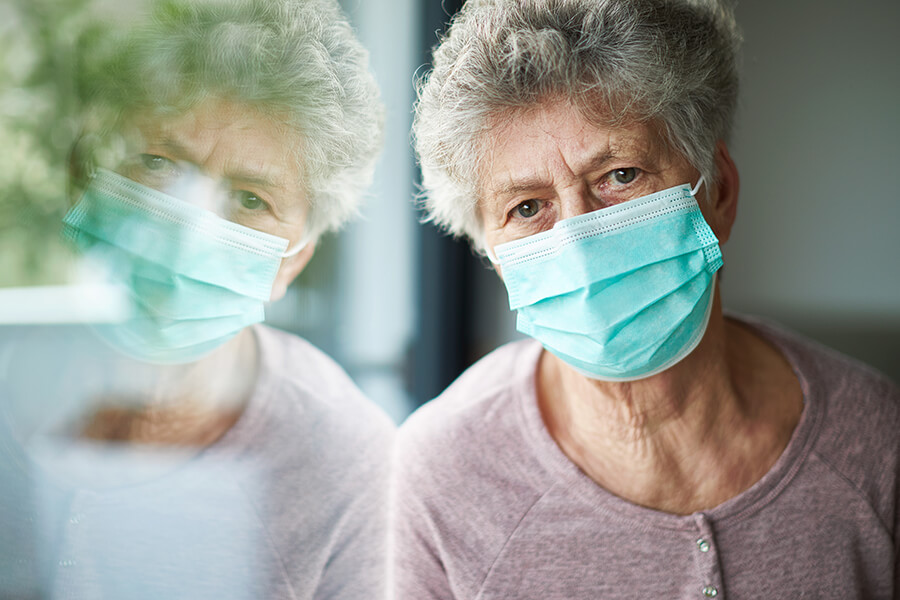After months of social distancing, being cooped up and separated from loved ones is taking its toll, leaving many people feeling lonely and isolated. But feelings of loneliness can be harmful. Research shows that social isolation and loneliness are major risk factors associated with poor physical and mental health in older adults, and can lead to health issues such as:
- Increased blood pressure
- Heart disease
- Obesity
- Diminished immune system functioning
- Depression and anxiety
- Poor cognitive functioning
- Increased risk of Alzheimer’s disease
To avoid the virus, those who are in higher-risk groups like older adults and those with compromised immune systems, will continue to follow socially distancing recommendations for some time to come. Although you may need to stay physically distant from friends and loved ones, it is still important to maintain social connections with others. How can you stay socially connected, avoid loneliness and isolation, yet still follow recommended guidelines?
To start, be sure to call or chat online with friends and loved ones on a regular basis. Friendships and social support are especially important during a crisis. Make these calls a priority of each day.
Here are a few additional ideas to help you connect with others that go beyond virtual chats:
- Pursue a passion. Have you always wanted to learn an instrument? A language? Many organizations are offering online classes for free or for a heavy discount during the pandemic. It can be a great way to stay busy while also connecting with others. You can search individual universities for free online classes, or go to online learning sites like Coursera and edX, which offer classes from numerous organizations. Classcentral.com keeps a list of free online learning opportunities.
- Share a skill with others. Sites like takelessons.com match learners with online instructors who teach music, language, crafts and hobbies, and more. Sign up to be a teacher if you have a skill you’d like to share with others.
- Volunteer. Helping others can be a great way to ease loneliness while also reducing stress because of the sense of purpose it provides. There are numerous opportunities for volunteering online: The Smithsonian, for example, has opportunities for digital volunteers, and VolunteerMatch offers a searchable site for opportunities, some of which can be done online. You can also call a local organization to see if there are ways you can help out from your home.
- Walk with a friend. If after weighing the risk, you determine that you can safely have an in-person meeting with a friend or loved one, consider an outdoor activity like a walk. Wear a mask and keep six feet apart to reduce your risk of exposure to the virus.
Maintaining relationships and staying connected to others takes extra effort during this time of social distancing, but it is important for your health and well-being. If at any time you are feeling overwhelming sadness or anxiety, talk to your health care provider.
Sources:
Social isolation and loneliness among older adults in the context of COVID-19: a global challenge
Social isolation and cognitive function in Appalachian older adults
